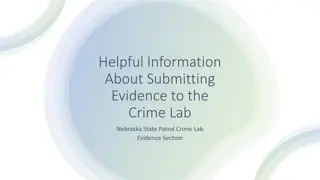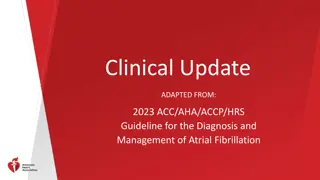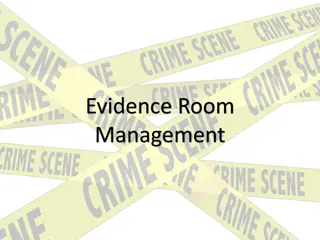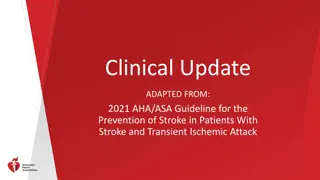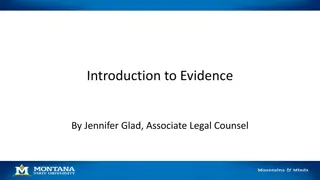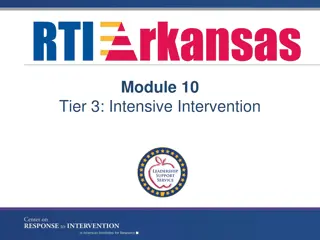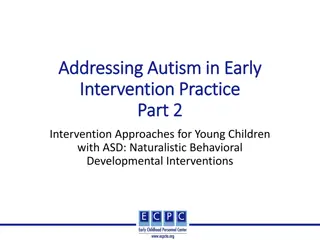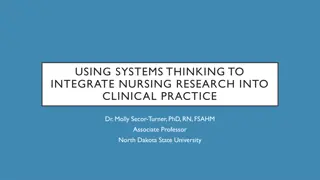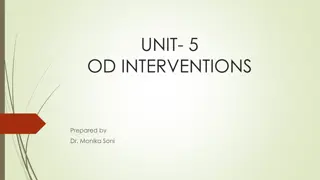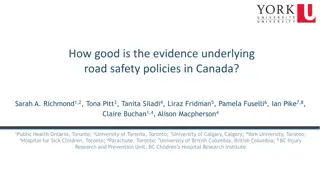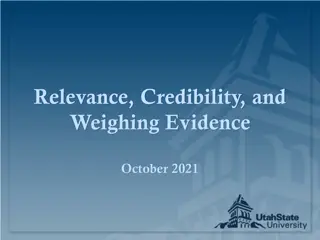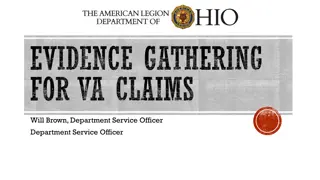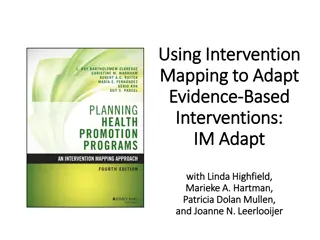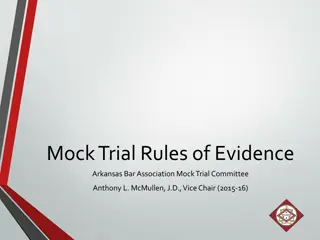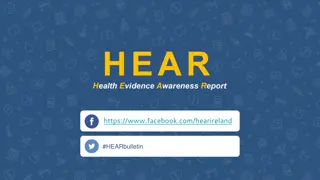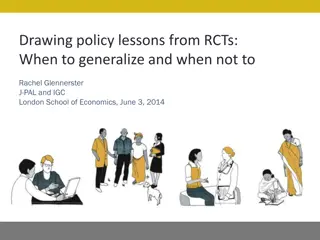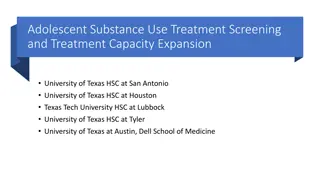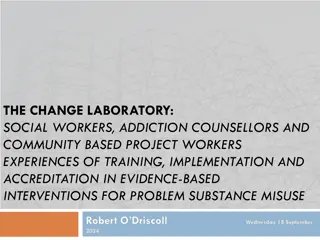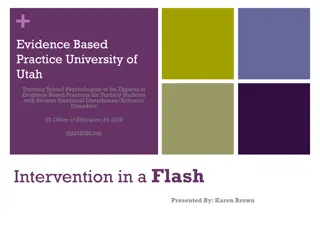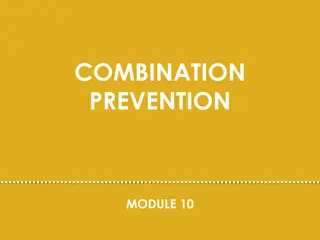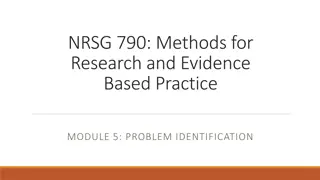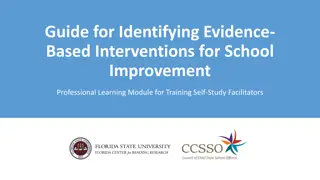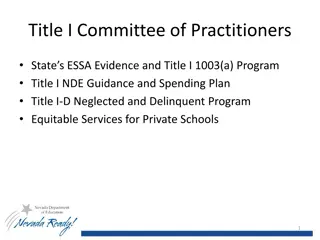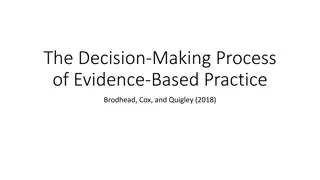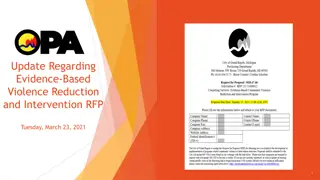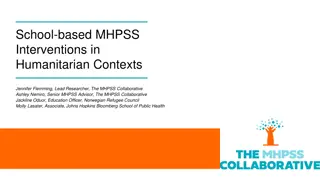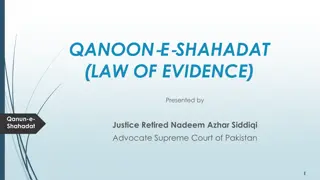The Role of Artifacts and Evidence in Educator Evaluation and Support
Exploring the role of artifacts and evidence in educator evaluation, this content covers the three categories of evidence required by the Oregon Framework. It delves into the efficient process that reduces redundancy, essential components of SLG goals, and the types of evidence relevant to professio
0 views • 15 slides
Understanding Impression Evidence Collection in CSI Investigations
Impression evidence plays a crucial role in investigations, including shoeprints, tool marks, tire tracks, bite marks, and riffling marks on bullets. This evidence can be collected in 2D using photography or tape lifts, and in 3D through casting methods. Differentiating between class and individual
0 views • 21 slides
Helpful Information About Submitting Evidence to the Crime Lab.
Helpful information about submitting evidence to the Nebraska State Patrol Crime Lab's Evidence Section. Learn about the NSP 750 Evidence Submittal Form, submission process, and guidelines for resubmissions. Ensure all necessary details are provided for proper analysis of evidence.
5 views • 16 slides
Illegally obtained evidence
Illegally obtained evidence refers to evidence acquired through unlawful means, such as searches without warrants or extraction under duress. The Fruit of the Poisonous Tree doctrine renders evidence inadmissible if derived from illegally obtained evidence. The Exclusionary Rule prohibits the use of
2 views • 30 slides
Clinical Update
This clinical update provides recommendations for the diagnosis and management of atrial fibrillation adapted from the 2023 ACC/AHA/ACCP/HRS guidelines. It includes information on class strength of recommendations, levels of evidence, and phrases for writing recommendations based on the quality of e
0 views • 46 slides
Evidence Room Management
Explore the intricacies of evidence room management in a law enforcement setting, including the roles of individuals like Greg Van Buskirk, differences in crime scene management between large and small departments, the distinction between property and evidence, the importance of maintaining chain of
0 views • 8 slides
Clinical Update: 2021 AHA/ASA Guideline for Stroke Prevention
This clinical update provides guidance adapted from the 2021 AHA/ASA Guideline for the Prevention of Stroke in Patients with Stroke and Transient Ischemic Attack. It categorizes recommendations based on strength and quality of evidence, outlining levels of recommendation and evidence for different c
0 views • 43 slides
Understanding Evidence in Investigations
Learn about the principles and types of evidence in investigations, including inculpatory and exculpatory evidence, physical, documentary, demonstrative, and verbal evidence. Explore sources of evidence and the significance of collecting relevant information to ensure a fair investigative process.
0 views • 14 slides
Understanding Tier 3 Intensive Intervention in RTI Systems
This content delves into the critical features of Tier 3 interventions within Response to Intervention (RTI) frameworks. It covers the objectives of Tier 3 systems, designing and implementing interventions, problem-solving processes, essential components of RTI, evidence standards for interventions,
0 views • 64 slides
Understanding Context Evidence in Legal Proceedings
Context evidence in legal proceedings refers to evidence of acts not charged in the indictment, used to provide a background for understanding specific allegations. This type of evidence is often relied upon by the prosecution to explain events or behaviors that may seem isolated or surprising. It i
1 views • 13 slides
Understanding Naturalistic Developmental Behavioral Interventions for Children with ASD
This resource explores the history of autism interventions, focusing on Naturalistic Developmental Behavioral Interventions for young children with ASD. It covers theoretical approaches, specific needs met by NDBIs, examples of research-validated NDBI models, and common elements used in intervention
0 views • 53 slides
Integrating Nursing Research into Clinical Practice with Systems Thinking
Dr. Molly Secor-Turner emphasizes the importance of evidence-based practice (EBP) in nursing. EBP, derived from rigorous research, leads to quality patient outcomes by aligning services with current knowledge. The process involves identifying problems, critiquing evidence, implementing recommendatio
0 views • 21 slides
Empowering Health Decisions and Care through OHDSI Community Collaboration
OHDSI's mission revolves around improving health by empowering a community to generate evidence that enhances health decisions and care. The journey to real-world evidence involves leveraging patient-level data in source systems and establishing reliable evidence. The OHDSI community is dedicated to
0 views • 5 slides
Understanding Organizational Development Interventions
Organizational Development (OD) Interventions play a crucial role in enhancing organizational functioning and aiding managers in navigating team dynamics. These interventions encompass various techniques, including behavioral and non-behavioral approaches such as Sensitivity Training, Transactional
4 views • 17 slides
Understanding Evidence-Based Medicine and Clinical Decision-Making
European Patients Academy on Therapeutic Innovation emphasizes the importance of Evidence-Based Medicine (EBM) in providing optimum clinical care. EBM involves systematic review and utilization of clinical research for informed decision-making, benefiting patients in disease management and treatment
7 views • 20 slides
Evaluation of Evidence for Road Safety Policies in Canada
The study critically appraises the evidence underlying road safety policies in urban municipalities of Canada. Data was collected through an environmental scan in five cities, identifying various interventions in road safety policies. A total of 383 studies were analyzed across different categories
3 views • 30 slides
Understanding Relevance, Credibility, and Weighing Evidence in Decision-Making
Explore the importance of relevance and credibility in evidence assessment, the role of hearing panels in evaluating evidence fairly, and the responsibilities they hold. Learn about presenting relevant evidence, policy analysis, and identifying irrelevant evidence to ensure a thorough review process
6 views • 32 slides
Mastering Claims, Evidence, and Warrants for Persuasive Writing
Understanding the concepts of claims, evidence, and warrants is crucial for constructing persuasive arguments. Claims represent positions to persuade, evidence supports claims with facts, and warrants bridge the gap between evidence and claims. An exercise is outlined to help practice forming claims
0 views • 8 slides
Understanding Biased Assimilation and Attitude Polarization in Social Disputes
People with strong opinions on complex social issues tend to interpret evidence in a biased manner, accepting confirming evidence readily while subjecting disconfirming evidence to critical evaluation. This can lead to increased polarization rather than narrowing of disagreement when exposed to the
0 views • 20 slides
Transformation of Quality Assessment Framework in Healthcare
The healthcare quality assessment framework is evolving with a new strategy focused on data-led, people's experiences, care integration, and safety culture. The current framework is transitioning towards a new approach by late 2023, incorporating separate registration and monitoring processes, five
0 views • 14 slides
Understanding Evidence Gathering for VA Claims with The American Legion Department of Ohio
Evidence is crucial for VA claims, and it can come in various forms such as documents, written statements, photos, and video recordings. The framework for evaluating evidence includes factors like relevance, competence, credibility, and weight. Understanding the types of evidence, forms of relevance
0 views • 14 slides
Psychotherapies for Bipolar Disorder - Evidence-Based Interventions
This content discusses psychotherapies for bipolar disorder, including managing bipolar depression and evidence-based manuals. It emphasizes the importance of psychological interventions tailored for bipolar disorder to effectively reduce relapse and manage symptoms. The content also highlights the
0 views • 9 slides
Using Intervention Mapping to Adapt Evidence-Based Interventions
In this comprehensive guide, learn how to systematically adapt evidence-based interventions (EBIs) to new settings while retaining critical elements for effectiveness. Tasks involve needs assessment, logic model development, searching for EBIs, assessing fit, planning adaptations, implementation, an
0 views • 34 slides
Understanding Mock Trial Rules of Evidence
Mock Trial Rules of Evidence are crucial for determining the admissibility of testimony and evidence in a trial setting. Students preparing for cases need to assess evidence admissibility, make timely objections, and be prepared to defend testimony. The rules cover objections, specific objections ty
0 views • 36 slides
Collaborative Efforts of Irish Health Librarians in Providing Evidence-Based Practice Support
Current awareness newsletter freely available on the internet, providing high-quality, relevant information to healthcare professionals and consumers. This collaboration of Irish health librarians aims to promote evidence-based practice by offering up-to-date information and resources. The conscient
0 views • 12 slides
Making Informed Policy Decisions: Lessons from Randomized Controlled Trials
Policy makers face challenges in decision-making without complete evidence. Drawing on a Bayesian approach to evidence, combining different forms of evidence, and considering contextual factors can aid in designing effective policy interventions. Case studies like non-cash incentives for immunizatio
0 views • 18 slides
Adolescent Substance Use Treatment and Screening Programs in Texas
Expansion of adolescent substance use treatment and screening programs across different University of Texas Health Science Centers in Texas, focusing on implementing systematic screening, evidence-based interventions, and referral pathways for youth with substance use disorders. The initiative aims
0 views • 10 slides
Experiences of Training and Implementation in Evidence-Based Interventions for Substance Misuse
This study explores the experiences of social workers, addiction counselors, and community-based project workers in training, implementing, and accrediting evidence-based interventions for problem substance misuse. The research delves into the challenges faced, including funding for accreditation, a
0 views • 23 slides
Enhancing Interventions for Sex Offenders: The Dynamic Risk Guide
Explore the principles of effective interventions, current strategies for addressing sex offender needs, and incorporating dynamic risk factors to provide targeted interventions. Uncover insights from a survey highlighting areas for improvement and learn about the Dynamic Risk Guide tool aiding agen
0 views • 25 slides
Practice and Procedure in Judicial Review: Factual Evidence and Interveners
The content provides valuable insights into the practice and procedure regarding factual evidence and interveners in judicial review cases. It covers general rules, recent cases, applications for oral evidence, questioning witnesses, opinion evidence, and the role of interveners. Key points include
0 views • 28 slides
Effective Interventions for Students with Academic Difficulties
University of Utah's evidence-based practices focus on training school psychologists to support tertiary students with serious emotional disturbance or behavior disorders. The "Interventions in a Flash" strategy helps struggling students acquire and retain basic skills like math facts and sight word
0 views • 23 slides
Combination HIV Prevention Strategies and Interventions
Explore the comprehensive approach to HIV prevention through a combination of biomedical, behavioral, and structural interventions. Learn about the goals of prevention, the ecological model, and the various strategies such as biomedical interventions and behavioral interventions. Discover how these
0 views • 16 slides
Research Methods and Evidence-Based Practice for Problem Identification
This module focuses on problem identification in research and evidence-based practice, emphasizing the importance of identifying the problem before seeking a solution. It covers components of the PICO framework, constructs well-built clinical questions, and provides examples related to hospitalized
0 views • 6 slides
Guide for Identifying Evidence-Based Interventions in School Improvement
This guide focuses on leveraging evidence-based interventions for school improvement, covering topics like the self-study process, ESSA requirements, and support for schools in need of comprehensive or targeted assistance. It emphasizes the importance of data-driven decision-making and collaboration
0 views • 41 slides
Title I Committee of Practitioners & ESSA Evidence Program Overview
In this overview, Gabby Pingue, the Title I Programs Director, discusses the importance of evidence-based interventions and activities in improving student outcomes under Title I programs. The ESSA evidence levels 1-4 are explained, highlighting the criteria for each level. The focus is on supportin
0 views • 22 slides
Understanding Evidence-Based Practice in Behavior Analysis
Definitions and analogies from the field of medicine help clarify the concept of Evidence-Based Practice (EBP) in Behavior Analysis. EBP involves integrating current best evidence with clinical expertise and client values to make informed decisions. The three-legged stool analogy illustrates the imp
0 views • 32 slides
Update on Evidence-Based Violence Intervention RFP Process
The City of Grand Rapids initiated an RFP process to implement an evidence-based violence reduction program, involving a review committee that assessed proposals based on established models. The committee decided to re-release the RFP with a focus on an evidence-based intervention model, ultimately
0 views • 6 slides
Structural Coupling between Science and Politics in Evidence-Based School Reform
This article by Gita Steiner-Khamsi explores the interplay between science and politics in evidence-based school reform, focusing on global public goods and the use of data and evidence in policy planning. It discusses the challenges and promises of evidence-based approaches, highlighting the comple
0 views • 17 slides
School-Based MHPSS Interventions in Humanitarian Contexts Realist Review
Conducted by a team of researchers and advisors, the realist review focuses on understanding the characteristics, mechanisms, and outcomes of school-based Mental Health and Psychosocial Support (MHPSS) interventions in humanitarian settings. The study aims to uncover how these interventions impact t
0 views • 21 slides
Understanding Qanun-e-Shahadat: Law of Evidence in Pakistan
Qanun-e-Shahadat Order 1984 replaced the Evidence Act of 1872 in Pakistan, aiming to align the law of evidence with Islamic principles. This law is crucial for judicial proceedings, governing the admissibility of oral and documentary evidence, primary and secondary evidence, and resolving conflicts
0 views • 22 slides


